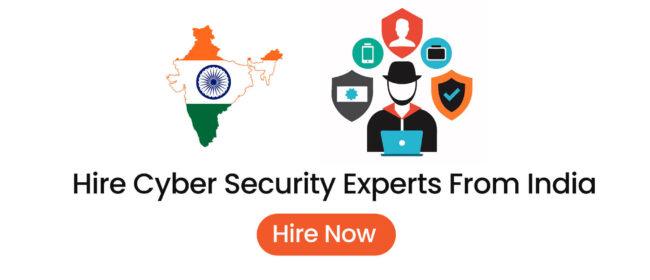15 Essential Skills to Look for When Hiring Remote Developers for Cybersecurity Jobs
In today’s digital age, cybersecurity is critical to protect sensitive data and ensure business continuity. Hiring remote developers for cybersecurity jobs is a strategic move, giving companies access to a global talent pool. However, finding the right professionals who possess both technical expertise and essential soft skills can be a challenge. This guide explores the 15 must-have skills when you hire remote developers for cyber security positions, divided into technical and workplace skills. We’ll conclude with an insight into why India is a prime hub for skilled cybersecurity analysts and how eDev can help you hire the best talent.
Technical Skills: The Backbone of Cybersecurity Expertise
When hiring remote developers for cyber security positions, technical skills are paramount. These are the core competencies that enable professionals to effectively identify threats, mitigate risks, and implement robust security protocols.
1. Network Security
A solid understanding of network security fundamentals is essential for a cybersecurity analyst. They must know how to secure networks by implementing firewalls, VPNs, and Intrusion Detection Systems (IDS) and configuring access controls. Knowledge of TCP/IP, network architecture, and network segmentation is crucial for minimizing vulnerabilities.
2. Penetration Testing
The ability to conduct penetration testing is a key skill for evaluating and enhancing an organization’s security. A Cybersecurity analyst should be adept at simulating attacks on systems, identifying weaknesses, and implementing solutions to fortify defenses. Familiarity with tools like Metasploit, Nmap, and Wireshark is vital for this role.
3. Cryptography
Cryptography is the foundation of data protection in cybersecurity. Developers should have a strong grasp of encryption algorithms, digital signatures, public-key infrastructure (PKI), and secure protocols like SSL/TLS. Understanding cryptographic principles ensures they can safeguard sensitive data from unauthorized access.
4. Operating System Security
Cybersecurity experts must be well-versed in securing different operating systems, including Windows, Linux, and macOS. They should know how to manage permissions, harden system configurations, and apply patches to protect against known vulnerabilities. Mastery of using tools like SELinux and Windows Security Center is an added advantage.
5. Threat Detection and Incident Response (IR)
Early threat detection and effective incident response are critical to minimizing damage from cyber attacks. Cyber security consultants should be skilled in using SIEM (Security Information and Event Management) systems like Splunk or QRadar. They should also be trained in incident response protocols, ensuring quick and effective containment and mitigation of threats.
6. Application Security (AppSec)
Developers must ensure the security of web and mobile applications by understanding secure coding practices, code reviews, and vulnerability assessments. Familiarity with OWASP Top Ten vulnerabilities and the ability to use tools like Burp Suite and ZAP for testing are crucial for maintaining the integrity of applications.
7. Cloud Security
As businesses increasingly migrate to the cloud, cybersecurity analysts must be proficient in cloud security practices. This includes understanding the security frameworks of leading cloud providers like AWS, Azure, and Google Cloud. Skills in managing identity and access management (IAM), encryption, and configuring security policies in cloud environments are essential.
8. Compliance and Regulatory Knowledge
Cyber security engineers need to stay updated with compliance standards such as GDPR, HIPAA, PCI-DSS, and ISO 27001. Knowledge of these regulations ensures that organizations remain compliant and avoid hefty fines while safeguarding customer data.
9. Forensic Analysis
In the aftermath of a security breach, the ability to conduct forensic analysis is invaluable. Developers should know how to gather and analyze digital evidence to identify the root cause of an attack and prevent future incidents. Familiarity with tools like EnCase and FTK (Forensic Toolkit) is an added advantage.
Workplace Skills: Soft Skills for Cybersecurity Excellence
Beyond technical proficiency, hiring the right remote developers for cybersecurity jobs means finding individuals who possess critical workplace or soft skills. These skills are instrumental in maintaining team collaboration, clear communication, and problem-solving efficiency.
10. Attention to Detail
Cybersecurity is all about identifying potential threats that may be hidden in a vast amount of data. Developers must possess keen attention to detail to detect subtle signs of intrusion, errors in code, or misconfigurations that could be exploited.
11. Analytical Thinking and Problem-Solving
The ability to think critically and solve problems efficiently is essential in cybersecurity. Developers must analyze security risks, understand their implications, and implement strategic solutions quickly. This skill is especially vital when responding to incidents where time is of the essence.
12. Effective Communication
Remote developers need to communicate clearly and effectively with team members, stakeholders, and clients. They must be able to translate complex technical concepts into understandable terms, ensuring everyone is on the same page. Good communication also ensures smooth collaboration within distributed teams.
13. Adaptability and Willingness to Learn
The cybersecurity landscape is constantly evolving, with new threats emerging regularly. Developers must stay adaptable and open to continuous learning to keep up with the latest tools, techniques, and best practices. This mindset is critical for maintaining up-to-date defenses against cyber threats.
14. Team Collaboration
Working remotely doesn’t mean working in isolation. Developers must be team players, able to collaborate with other developers, IT staff, and security experts. Familiarity with collaboration tools like Slack, Jira, and Microsoft Teams helps facilitate effective teamwork, even across time zones.
15. Time Management and Self-Motivation
Remote work requires excellent time management skills. A cyber security engineer should be able to prioritize tasks, meet deadlines, and remain self-motivated, even without direct supervision. This ensures that they stay productive and focused while contributing effectively to cybersecurity projects.
Why India is a Hub for Cybersecurity Talent
India has become a prominent hub for cybersecurity analysts, making it an ideal destination for hiring remote developers for cybersecurity jobs. With a large pool of highly skilled professionals, India offers a mix of affordability and expertise that is unmatched globally. The country’s strong emphasis on STEM education and a growing ecosystem of cybersecurity training institutes ensure that developers possess the latest technical knowledge and skills needed to tackle modern threats.
Furthermore, Indian developers are known for their adaptability and proficiency in English, enabling them to integrate seamlessly into global teams. Companies looking for cybersecurity experts will find a wide range of professionals specializing in various domains, including network security, cloud security, and application security.
How eDev Can Help You Find the Best Remote Cybersecurity Analyst
Finding and hiring top-tier cybersecurity experts can be time-consuming, especially when trying to manage the process remotely. This is where eDev comes in. Whether you need a penetration tester, a cloud security expert, or a compliance specialist, eDev has the network and resources to connect you with the best talent. eDev’s platform streamlines the entire hiring process, offering companies access to a curated pool of highly skilled developers and professionals from India and other tech-rich markets.
eDev provides a comprehensive suite of tools for hiring, onboarding, paying, and managing remote developers, ensuring they remain productive and aligned with your project goals. Our platform supports both short-term, on-demand hires for specific projects and long-term placements through our Employer of Record (EOR) model, allowing you the flexibility to scale your teams as needed.
By partnering with eDev, you not only save time and effort but also gain access to top cybersecurity professionals, from India and Latin America, who will keep your projects secure and successful.
Conclusion
Cybersecurity is a dynamic and critical field that requires a unique blend of technical and soft skills. By focusing on these 15 essential skills when hiring remote developers, companies can build a strong, effective cybersecurity team. And with India emerging as a hub for cybersecurity talent, platforms like eDev make it easier than ever to find, hire, and manage the best remote developers for your needs.
Let eDev be your trusted partner in building a secure digital future—one skilled cybersecurity analyst at a time.































